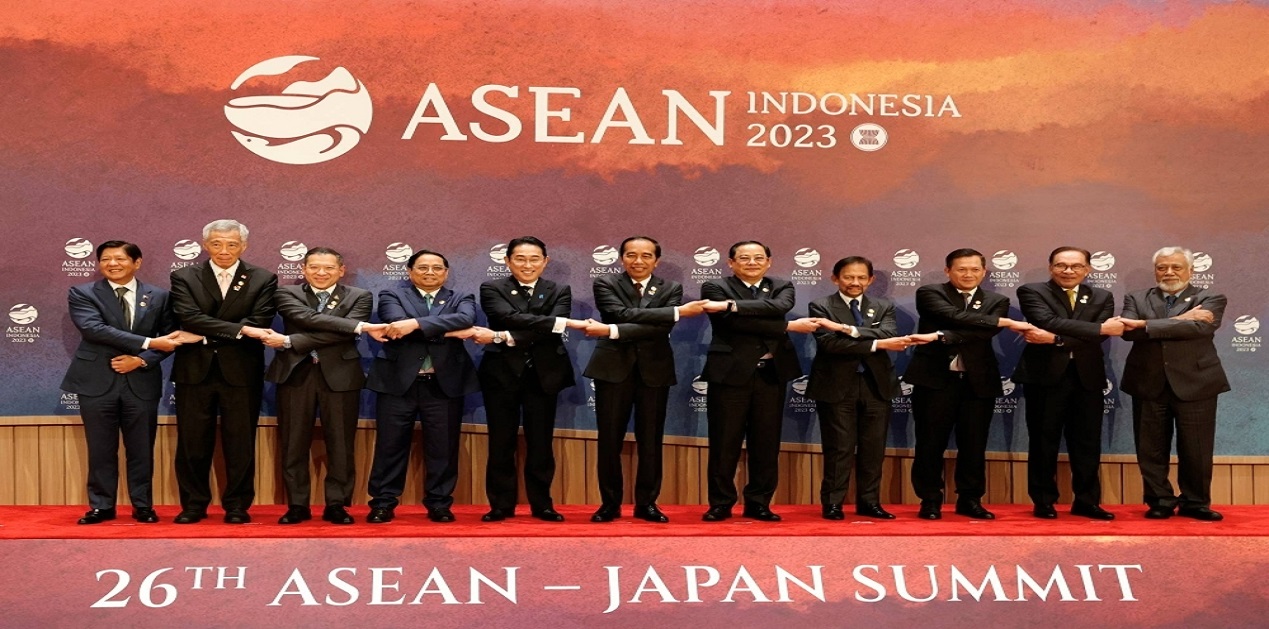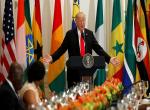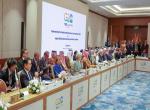Introduction
In a major outreach initiative towards the 10-member bloc Association of Southeast Asian Nations (ASEAN), Japan hosted a summit in Tokyo from 16-18 December 2023 to commemorate the special anniversary of the 50th year of Japan-ASEAN cooperation and friendship by welcoming the leaders of the ASEAN bloc. Despite the steady plummeting of the popular rating over funding scandal and resignation of a host of ministers and party officials days before the summit, Japanese Prime Minister issued a statement for the occasion, reflecting on the depth of the people-to-people relationships and trust built over time. The main objective of the summit was to celebrate the vitality of the region and the importance of the relationship to its future security and prosperity.
It may be useful to identify the major takeaways from the summit. From the remarks made by various leaders, it transpired that the main objective was to deepen relations regarding security and economic issues as it was held amid China’s growing clout that threatens to alter the region’s geopolitical environment. In a “joint vision statement” that was issued, the leaders pledged to step up cooperation on maritime security, strengthen supply chains, promote sustainable energy practices and expand people-to-people exchanges in various sectors.[1] They also announced the launch of an initiative for the next generation auto industry aimed at mapping out strategies to enable ASEAN members to remain a major hub of auto production and exports.
Decarbonisation Moves
Among other new efforts to further boost the economy in the fast-growing region was by supporting digital start-ups as well as accelerating public and private investment to achieve decarbonisation. Inaugurating the summit of the Asia Zero Emission Community (AZEC) at Kishida’s office on 18 December, Kishida focussed on decarbonisation measures and pledged that Japan will “take the lead” in efforts to achieve a carbon-free Asia. He promised that Japan shall try to create a huge “decarbonisation market” capable of attracting investment from around the world to Asia as reducing carbon dioxide emissions is a “common challenge” for the region.[2] A joint statement issued at the end of the AZEC summit, the leaders agreed to pursue decarbonisation through “diverse” and “practical” pathways, depending on the “circumstance and different starting point of each country”. It is estimated that 4 quadrillion yen ($28 trillion) would be required for decarbonising Asia. Kishida therefore promised to establish a new organisation to support AZEC members in implementing necessary policies for carbon neutrality.
The decisions were taken unanimously by Japan and nine members of the bloc. For information, ASEAN group compromises of Brunei, Cambodia, Indonesia, Laos, Malaysia, Myanmar, the Philippines, Singapore, Thailand and Vietnam. Myanmar, which has been under military rule since a February 2021 coup, was not invited to the Japan-ASEAN summit and is not an AZEC member. All the participating members confirmed their cooperation on maintaining economic growth and ensuring energy security as well as cutting dioxide emissions.
China Factor and Counter-measures
At a press event, Indonesian President Joko Widodo, the current ASEAN Chair, said Japan and the bloc will maintain peace and stability in the region while adhering to international law. The significance of the summit at this time can be measured at a time when Japan is keen to bolster ties with developing and emerging countries collectively known as the Global South, which includes the ASEAN members, to capitalise on their growth while countering Beijing’s increasing influence.
For Japan, the ASEAN region is strategically important as the bloc is struggling to cope with the challenge posed by China in the South China Sea, which is home to one of the world’s busiest maritime sea lanes. Some of the bloc members have overlapping territorial claims with China there. The recent spat between the Chinese naval vessels with that of the Philippines, including water cannon firings by Chinese coast guard ships in the waters claimed by the Philippines has sent alarm bells throughout the region.
Since Beijing claims almost the entire South China Sea, a vital trade corridor, its increased deployment of vessels and other methods to assert its claims in disputed areas have riled nations across the region as well as Washington. Japan does realise this extremely worrying development and thus is keen to partner with the ASEAN bloc members to strengthen dialogue and cooperation for the maintenance of maritime security and safety, maritime order based on the rule of law, including freedom and safety of navigation and over-flight and unimpeded commerce.
The joint statement did not categorically identify China in order not to provoke Beijing to issue a counter threat but underlined that the participating nations will "enhance maritime domain awareness as well as cooperation among coast guards and relevant law enforcement agencies, strengthen cooperation on maritime capacity building, and ensure the resolution of disputes by peaceful means, without resorting to threat or use of force in accordance with universally recognized principles of international law."[3]
Japan’s Capacity-building Measures
Japan has also expanded capacity building with specific members of the bloc. Japan announced to deepen ties with Malaysia and signed with his Malaysian counterpart Anwar Ibraham a 400 million yen ($2.8 million) for “warning and surveillance” equipment. The purpose was to bolster Malaysia’s maritime security capability as part of a Japanese official security assistance programme specifically for militaries of friendly nations to help strengthen theirs law enforcement and security capabilities. The assistance includes provisions of rescue boats and other equipment to help improve the military capability of Malaysia. Japan realises that Malaysia sits at a crucial location on sea lanes connecting the Indian Ocean and East Asia and serves a vital role in warning and surveillance operations for the entire region and therefore was necessary to help build its capacity building in the maritime domain.[4]
Japan’s cooperation with Vietnam on the security domain has already taken root. In November 2023, both sides agreed to elevate the status of their relationship to a top-level comprehensive strategic partnership, under which they will discuss details of a possible deal to broaden their defence cooperation. Japan has also started to deepen relations with Cambodia, especially after Manet has assumed power.
In November 2023, Japan agreed to help the Philippines buy coast guard vessels with provision of coastal surveillance radars to the Philippine navy. The two countries also agreed to start talks for a key defence pact called the Reciprocal Access Agreement designed to smooth their troop deployments on each other’s territory for joint military exercises. This development took place after Japan expressed “serious concern” about “dangerous actions” following tense confrontation between the Philippine and Chinese vessels in the South China Sea, which included a collision and Chinese ships shooting water cannons. Both sides also signed an agreement to strengthen cooperation between their coast guards.
New Focus Areas
Indeed, Japan’s relations with the ASEAN are quite substantial. It started in the early 1970s when Japan started relocating labour-intensive industry in preference to knowledge-intensive and high-tech sectors of industrial production to nearby overseas production bases in the pattern of flying-geese pattern of economic development, the economic content assumed robustness. This led to a close economic interdependence. The security dimension gathered focus when an external power started to threaten the existing equilibrium and undo the gains achieved over the past four to five decades.
Other institutional mechanisms were set up to deal with certain trade issues as and when they arose. For example, in 1973, a forum was set up on synthetic rubber to solve a trade dispute over Japanese rubber exports. East Timor’s Prime Minister Xanana Gusmao took part as an observer, as ASEAN bloc has agreed in principle to admit the nation as its 11th member.
Despite Japan’s economic engagement with the ASEAN region, some hesitations remained to engage with Japan because of the region’s experience with Japan’s wartime actions. That soon dissipated as Japan honoured its pacifist stances during much of the post-War years. There is a need to relook this constraint as the region is facing new challenges. Though any dramatic overhaul of Japan’s pacifist stance is unlikely in the near term, expanding cooperation with partner countries and rapidly building up its military and expanding its military partnerships as enunciated in Japan’s National Security Strategy of December 2022 has been chosen as an alternative and better strategy to counter China’s growing assertiveness in the region.
Kishida also signed a deal with Widodo of Indonesia, offering a grant of up to 9.05 billion yen ($63.7 million) to fund Indonesia’s maritime security capability advancement plan, including a Japanese-built large-scale maritime patrol boat.
This makes the issue of sharing views on promoting a rules-based Indo-Pacific region that is free and open embracing key principles such as ASEAN’s unity and centrality, inclusiveness and transparency become important. Therefore, the leaders stressed “respect for sovereignty and territorial integrity, settlement of differences or disputes by peaceful means and renunciation of the threat or use of force”.
A plan to implement 130 projects was adopted. Japan called for stepping up security and defence cooperation, such as arms technology and equipment transfers, cyber-security and tackling disinformation. Kishida also pledged to reinforce support for efforts against climate change, green technology and digital transformation as well as investment, including in the region’s automotive industry.
The challenge before Japan is to take all the ten ASEAN bloc members into a common fold as not all members are in lockstep in their stances toward China, with which many have strong ties and are reluctant to choose sides. Though Japan has chosen to deal with the member countries on individual basis being mindful of their differing perspectives towards China, a regional consensus to deal with China might be a far cry for quite some time.
References
[1] “Japan and ASEAN vow to widen cooperation after 50 years of ties” The Japan Times, 17 December 2023, https://www.japantimes.co.jp/news/2023/12/17/japan/politics/japan-asean-summit/
[2] “Japan PM Kishida vows to take lrad in decarbonisation in Asia”, Mainichi Daily News, 18 December 2023, https://mainichi.jp/english/articles/20231218/p2g/00m/0in/018000c
[3]Mari Yamaguchi, “Japan and ASEAN bolster ties at a summit focused on security and economy amid tensions with China”, 17 December 2023, https://apnews.com/article/japan-asean-summit-maritime-security-china-8ff28376dc10f9a5f95b93c4c7c7c7dc
[4]Sakura Murakami, “Japan and Malaysia sign ¥400 million maritime security aid deal”, 16 December 2023, https://www.reuters.com/world/asia-pacific/japan-malaysia-sign-28-mln-maritime-security-assistance-deal-2023-12-16/
(The paper is the author’s individual scholastic articulation. The author certifies that the article/paper is original in content, unpublished and it has not been submitted for publication/web upload elsewhere, and that the facts and figures quoted are duly referenced, as needed, and are believed to be correct). (The paper does not necessarily represent the organisational stance... More >>
Image Source: https://www.japantimes.co.jp/japantimes/uploads/images/2023/12/14/269159.jpg











Post new comment